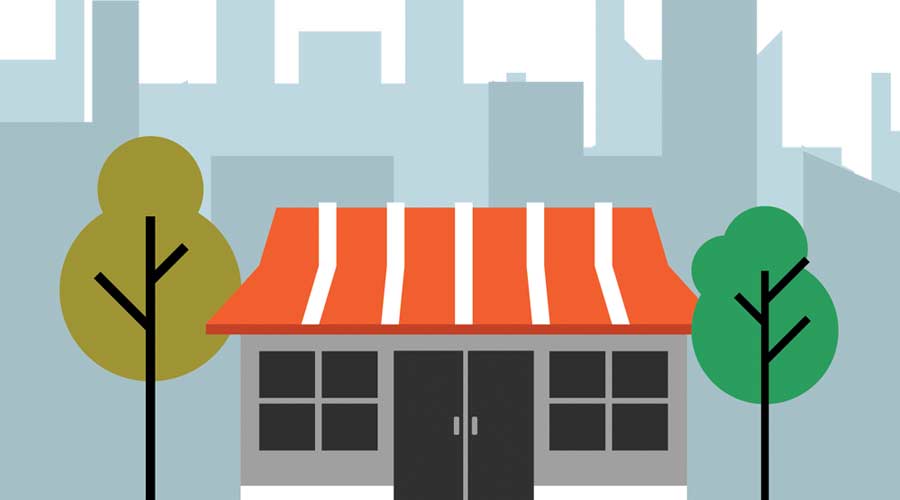
Contributed by Adam Povlitz, CEO of Anago Cleaning Systems
In the U.S., small-to-medium size enterprises (SME, or small business) represent 99.7 percent of all employer firms and create 64 percent of all new jobs. It is safe to say that many more people would be unemployed across this nation without SMEs. SMEs bring innovation, creativity and keep a competitive free market alive and robust. SME owners focus more on direct-to-consumer contact and are typically tuned with a particular product or service needed in that community. This model allows SME owners (typically) to be nimbler and more adaptable to changes in consumer behavior, market trends, and economic climates. The ability for a SME to shift and pivot is much easier than its big-box competitors, and there is still a powerful public sentiment in supporting an SME over larger, national competitors, even online merchants.
Communities across the nation must be more mindful when making consumer choices to support local small businesses. When you shop locally, you are helping a family survive, and in return, you are most likely receiving direct and indirect benefits of helping contribute to a thriving local economy. With that said, when COVID-19 arrived, small businesses were forced to close their doors, while online titans like Amazon took front and center in supplying Americans with their everyday necessities.
SME Recovery In The Face of COVID-19
The COVID-19 crisis created a new set of ongoing challenges for small businesses as they fight and struggle toward recovery. Many local companies watched the demand for their product or service freefall. They found it difficult to create sales and operational channels (mostly digital and online) to meet new customer buying patterns. In a recently published article, the McKinsey Global Institute and Oxford Economics, noted the recovery of small businesses will take years, with many never resurfacing. Recovery will undoubtedly require assistance on the government and community levels.
One of the most effective assistance programs from the pandemic’s crush on small businesses was the Paycheck Protection Program (PPP). This program provided small businesses with the financial recourses to maintain payroll, hire back laid off or furloughed employees, and cover any applicable overhead as outlined through the program. Millions of dollars were distributed to those who sought to defraud the government, which took away from the small businesses that needed the assistance. Unfortunately, this was also one of the most abused programs stemming from the pandemic.
Still, the strongest proponent of small business survival is community involvement, and every convenient effort must be made to continue to support community businesses when possible.
Reasons To Shop Locally
There are a thousand reasons (all good) to return to supporting local businesses. Many local economies are built on art, entertainment, and recreation. This could mean local restaurants, specialty services, theatres, etc. As people start to venture out more, the surge in local economies can be felt like a strong heartbeat as a domino effect occurs. Return to pre-COVID activities can resonate through a local economy that signals survival.
To survive today, SMEs must adapt and invest in talent and technology. Small business owners and operators will need to make extreme changes to support their recovery and economic health. Even in the broadest of terms, small business owners need to figure out how to protect the health and safety of customers and staff while testing new business models to adjust for inconsistent buying behaviors and labor issues.
The Franchise Misconception
When engaging with local businesses within the community, it is essential to note that not all small businesses are ‘mom and pop’ shops. Through franchising, local entrepreneurs can own and operate nationally recognized brands within their community. There are many examples, but one of the strongest is in the commercial cleaning franchise industry. Anago Cleaning Systems, for example, is a strong brand in the U.S. and Canada among janitorial and commercial cleaning. Still, each is owned and operated by small business owners and entrepreneurs within their specific community. It is essential to highlight this industry as it was called to the frontline when COVID-19 shut down businesses and kept people at home. Many small business owners served their communities by cleaning and disinfecting schools, medical facilities, stores and restaurants, and office buildings. These are businesses that exist locally and need community support to survive.
Focusing on your community and the small businesses is a socially responsibly, fiscally minded duty we all share as community members and neighbors. It is a way to directly impact the overall economic health and wellness of a community, and it simply is the right thing to do when possible.

 The Down and Dirty on Cleaning in Virus Season
The Down and Dirty on Cleaning in Virus Season How Surfactant Use is Expanding in Commercial Cleaning
How Surfactant Use is Expanding in Commercial Cleaning Operational Excellence Series 2025: Labor Strategies
Operational Excellence Series 2025: Labor Strategies